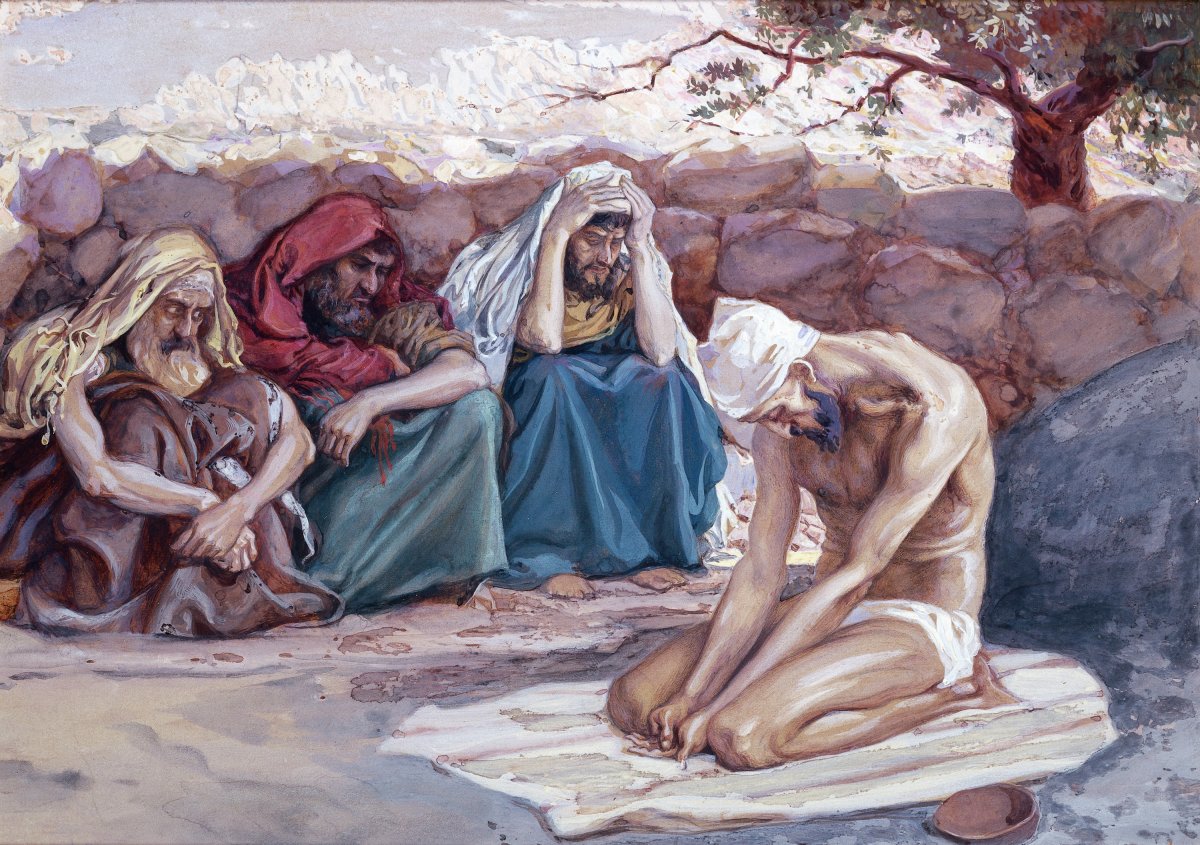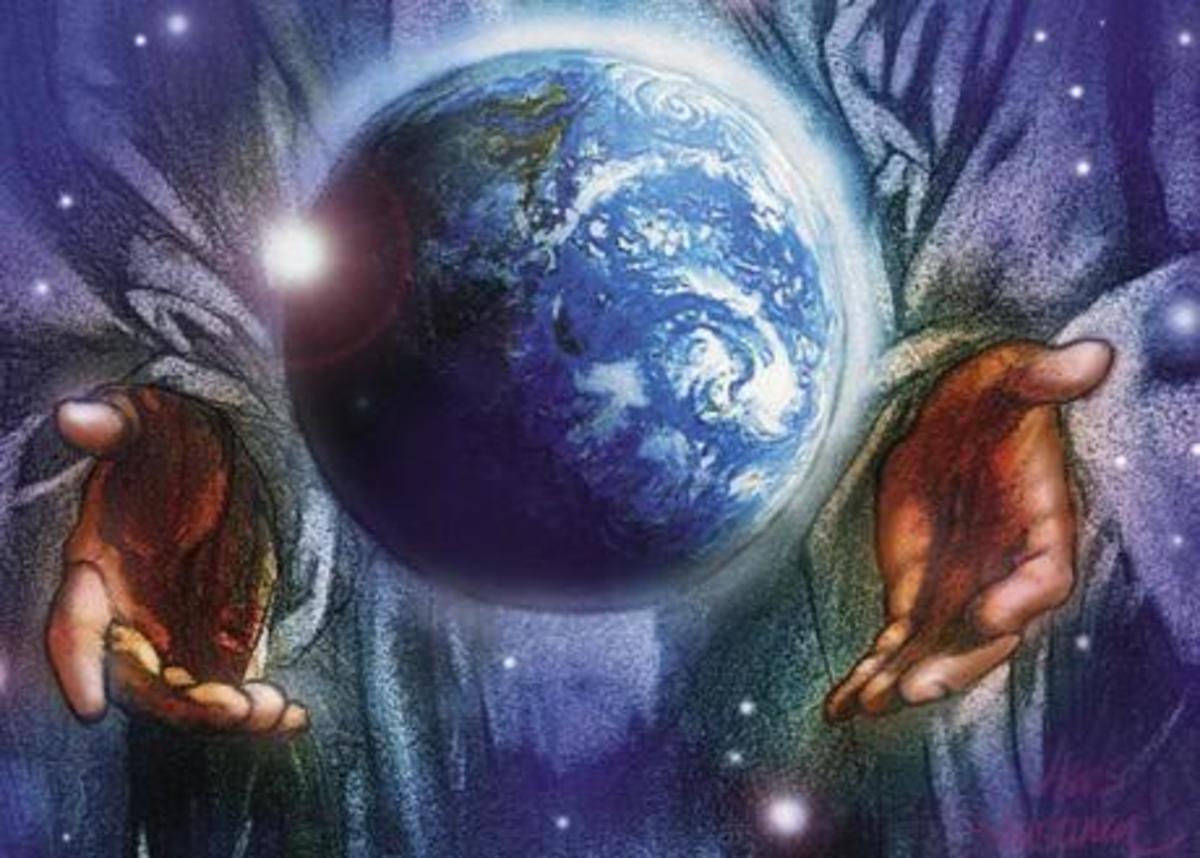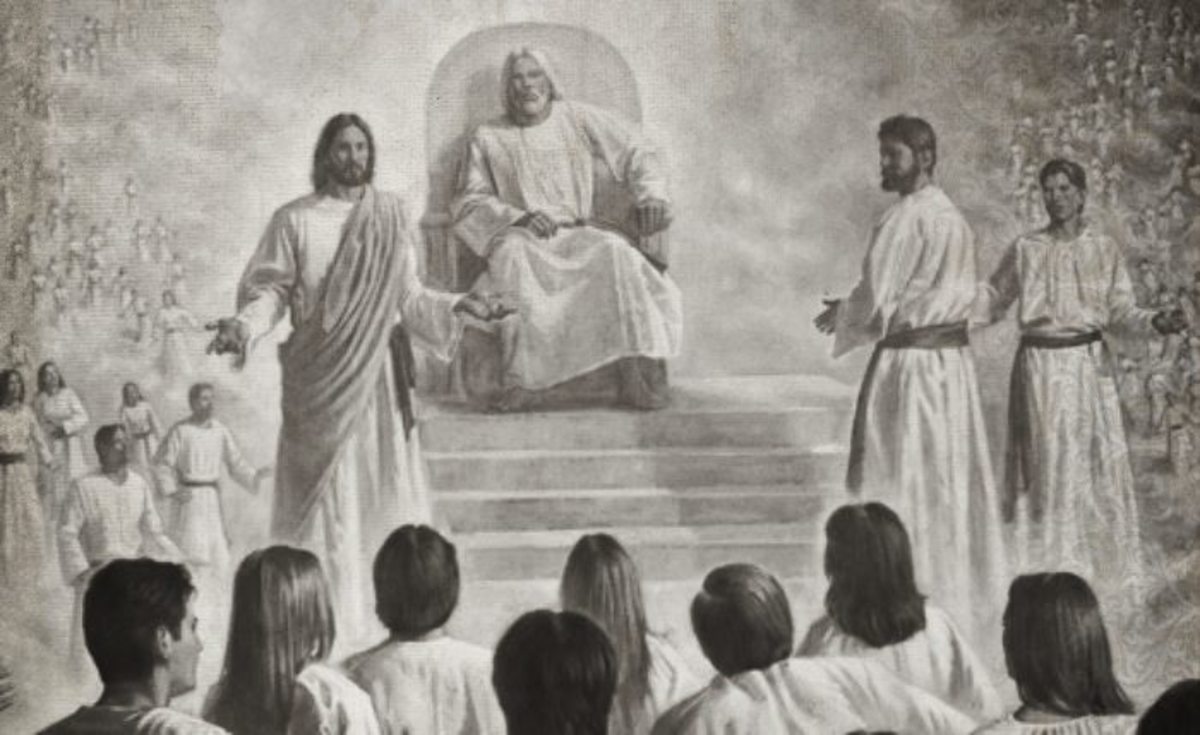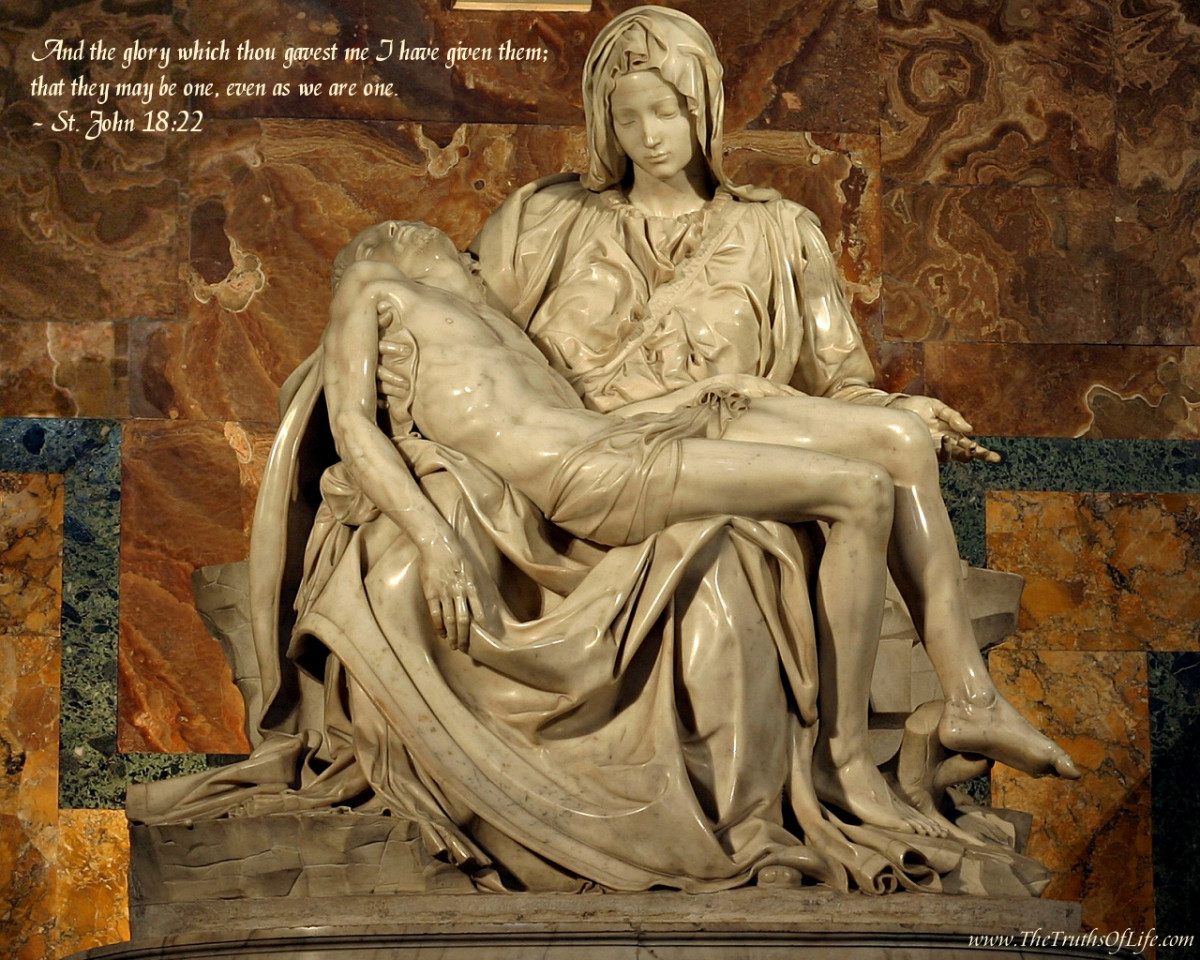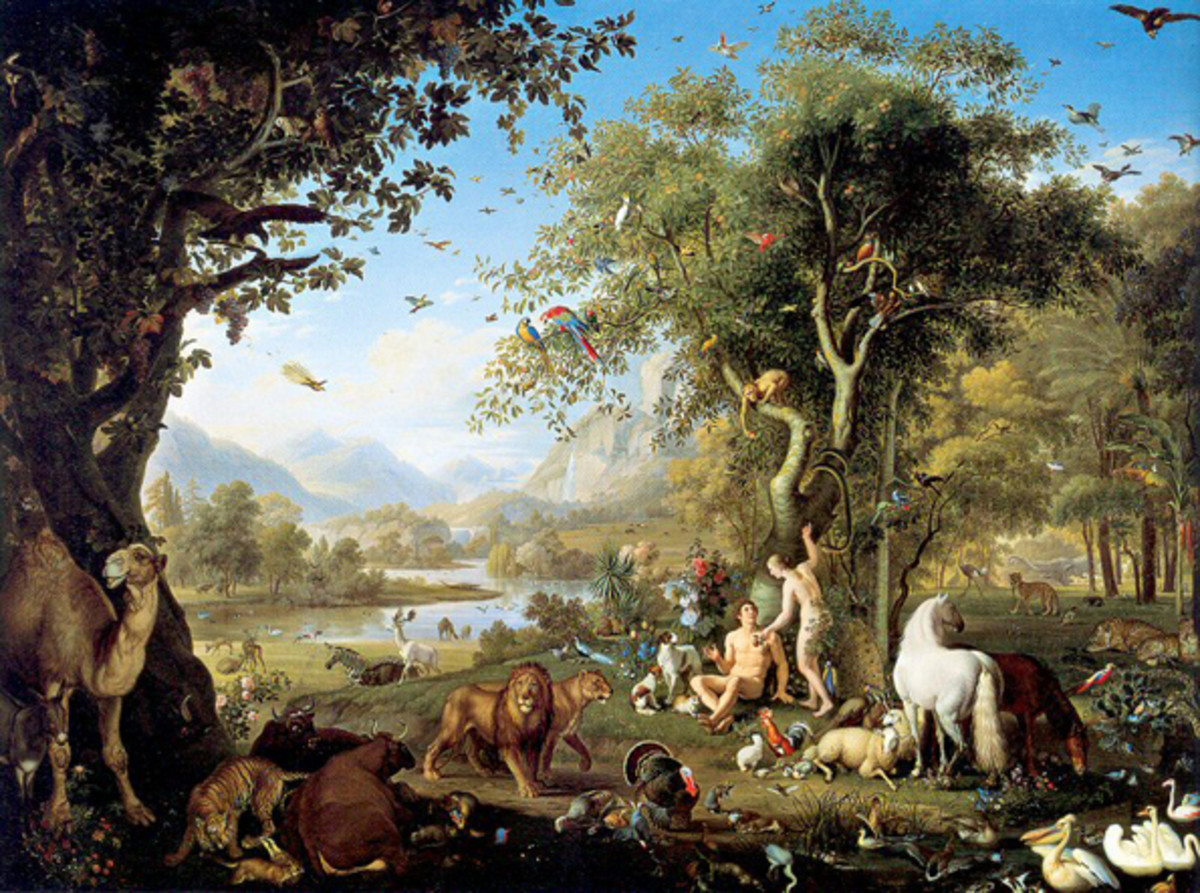Adam and Eve: The Great Premortal Debate — A Doctrinal Prelude (Episode Two)
Why Some Spirits Rejected God's Plan: Understanding Premortal Agency and the Atonement
God knew that not all of us would accept the Plan of Happiness presented at the grand council of spirits in heaven before life on Earth. Some would rebel against that plan and choose not to partake of the further instruction that Earth life provides.
Not willing to infringe upon our divine right to choose, Heavenly Father allowed events to transpire in heaven according to our desires. The agency to act morally—the divine gift made possible through the Atonement of Jesus Christ—is the ability to make mistakes, repent, and receive forgiveness without suffering eternal consequences.
As a continuation of that exploration, this second episode addresses the divine controversy that unfolded before Earth’s creation—a conflict of agency, glory, and eternal consequence. Adam and Eve: I Lived in Heaven, so Did You!—a Doctrinal Prelude to the Story of Adam and Eve (Episode One) discusses God’s Plan of Salvation, affirming that all human beings lived as spirits—offspring of God—before birth into mortality. The sections below explore the sacred power of moral agency, Lucifer’s counterfeit proposal, and God’s eternal design.

What Is the First Estate? How Premortal Agency Shapes Our Eternal Progression
The largest portion of our training in heaven was learning to accept the plan for mortality on Earth and to keep our first estate—our spiritual heritage and test. Graduation to Earth life marked our transition from spirit existence on the path to becoming like God the Father.
The First Estate
The phrase first estate was used by Abraham to describe our premortal existence before birth into mortality. Each “estate” of life comes with its own set of challenges and tests that we must overcome to progress toward exaltation—becoming perfect in body and spirit, like Heavenly Father and Jesus Christ.
God revealed to Abraham:
“They who keep their first estate shall be added upon; and they who keep not their first estate shall not have glory in the same kingdom with those who keep their first estate; and they who keep their second estate shall have glory added upon their heads forever and ever.”
(Abraham 3:26)
The Second Estate
The second estate refers to mortal life. Accepting God’s plan because of the inherent goodness within us, even as we face trials and spiritual hardship, is one of the many tests that allow us to keep this estate. Christ made it possible for us to repent, change, and return to God—making repentance essential during this stage.
Passing through mortal life and remaining true to the laws and covenants of God prepares us to receive our third estate as joint-heirs with Christ in the Kingdom of God.
A modern apostle, Elder Neil L. Andersen, taught:
“The invitation to repent is rarely a voice of chastisement but rather a loving appeal to turn around and to ‘re-turn’ toward God. It is the beckoning of a loving Father and His Only Begotten Son to be more than we are, to reach up to a higher way of life, to change, and to feel the happiness of keeping the commandments. Being disciples of Christ, we rejoice in the blessing of repenting and the joy of being forgiven. They become part of us, shaping the way we think and feel.” [1]
The Third Estate
The third estate begins after the Final Judgment, a sacred moment following resurrection. All people will be assigned to one of the many mansions in heaven that Jesus Christ has prepared for those who accept Him. This estate refers to our eternal reward in a Celestial, Terrestrial, or Telestial state of existence—each accompanied by a glorified body and a permanent spiritual condition.
This final estate is determined by the laws we chose to live and the desires we embraced in mortality. (See D&C 76:50–112; 88:20–24, 28–31; Alma 41:3–5; D&C 137:9; 2 Cor. 5:10)
Jehovah... had progressed to be the foremost among us, even like God the Father.
Lucifer’s Rebellion Against God’s Plan: Why Satan Rejected the Risk of Mortality
Lucifer disapproved of the possibility that any of us might fail to return to our celestial home with God. His major concern was the reality that all of humanity would forget their heavenly home during our mortal sojourn, our second estate. He believed it unjust that anyone could conceivably never return to heaven.
Keeping the first estate of life meant agreeing to a plan where many might not return to live with God.
Keeping the second estate meant repenting and accepting Christ in order to become like God.
The third estate is the eternal reward for following Christ—becoming joint-heirs with Him of all the Father possesses, Heaven.
To Lucifer, it was a risk not worth taking. The veil of forgetting made mortality too dangerous. He rejected the plan Jehovah presented on the Father's behalf. According to scripture, a third of the hosts of heaven agreed with him. Lucifer swore he could bring every soul back into God's presence—if the Father would give him the glory (power or ability) immediately. With that power, Lucifer would ensure none of us forgot our heavenly home or ever transgressed God’s law. There would be no need for death.
But Lucifer’s plan was self-serving.
He sought the power of God the Father and was jealous of Jehovah, who had progressed to become the foremost among us—even like unto God. Though Lucifer held a noble and influential position as one of the Sons of the Morning, he had not attained a glory comparable to Jehovah’s.
Wielding tremendous influence, he sought the admiration of his fellows and the power that came with it. Power—not love—was his ambition from the beginning. Ambition clouded his understanding of the Father’s plan.
The second estate is not about guaranteed safety—it was about learning and transformation. It was about becoming as benevolent as God so that humanity could one day live as God lives: a perfected, physical being who governs creation through both justice and mercy. All creation obeys God because all creation loves Him. Lucifer did not possess that kind of love or influence over the elements.
God would have willingly given Lucifer divine power—just as He offers it to all who keep His commandments—because such beings would use it to further His eternal purposes. Unlike in fictional portrayals, divine power cannot be used for selfish ends, because the very elements of existence refuse to obey selfish intent.
Lucifer did not want to risk forgetting his premortal life or failing to return. He deceived himself into thinking he could take a shortcut to salvation and power. But God’s glory is not just about power—it is about love, experience, and obedience. Jehovah earned His glory by becoming perfect through experience. Lucifer, unwilling to walk the same path, wanted power without mastery and glory without love. He could not succeed.
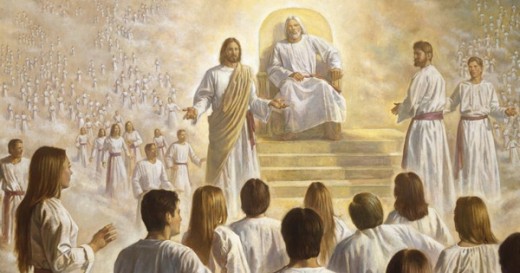
Why Lucifer Rejected God's Plan: The Real Reason Satan Refused Mortality
Lucifer disapproved of the possibility that any of us might fail to return to our celestial home with God. A major concern of his was that all of humanity would forget their heavenly home during our mortal sojourn. He supposed it unjust that any of us might never return.
Keeping the first estate meant agreeing to a plan where many of us might not return to live with God.
Keeping the second estate meant repenting and accepting Christ in order to become like God.
The third estate is the eternal reward for following Christ—becoming joint-heirs with Him of all that the Father possesses.
To Lucifer, it was a risk not worth taking. Coming to Earth through a veil of forgetting was dangerous, and a third of the hosts of heaven agreed with him. He rejected the plan Jehovah presented on the Father’s behalf. Lucifer swore he could bring us all back into the presence of God—if the Father gave him the glory (power or ability) immediately. With that power, Lucifer would ensure that none of us forgot our heavenly home or ever misstepped in keeping God’s law. There would be no need for death.
But Lucifer’s plan was self-serving.
He desired the power of God the Father and was jealous of Jehovah, who had progressed to become the foremost among us—even like unto God Himself. Though Lucifer held a noble and influential position as one of the Sons of the Morning, he had not attained glory comparable to Jehovah’s. With that stature, Lucifer wielded tremendous influence and sought the admiration of his fellows—and the power that came with it.
Power, not love, was his ambition from the beginning.
Ambition clouded his understanding of the Father’s plan. He failed to grasp that the second estate was about learning and transformation—becoming as benevolent as God so that humanity could one day live as God lives: a perfected, physical being who governs all creation through justice and mercy. Because all creation loves the Creator, all creation obeys Him. Lucifer did not possess that kind of love or influence over the elements.
God would have willingly given Lucifer divine power—just as He offers it to all who keep His commandments—because those who do so would use it to fulfill His eternal purposes. Unlike in popular portrayals, divine power cannot be used for selfish ends. The very elements of existence refuse to obey selfish intent.
Lucifer did not want to risk forgetting his premortal life or failing to return. He deceived himself into believing that God would give him glory without the path. But God’s glory cannot be separated from love, obedience, and experience. Jehovah earned His glory by becoming perfect through sacrifice. Lucifer, unwilling to walk that same path, wanted power without mastery and glory without love. He could not succeed.
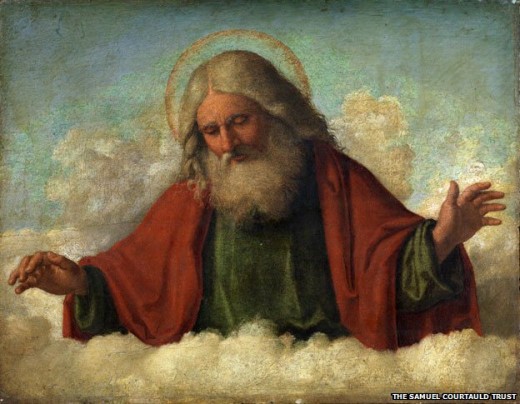
Jehovah, Adam, and Eve: Their Divine Roles in the Creation and Plan of Salvation
Jesus Christ, known as Jehovah in the premortal realm, is the first spirit child created by Heavenly Father and the greatest among all of us. He is a member of the Godhead, the divine counsel of Three whom we call God the Father, God the Son, and God the Holy Ghost.
Under the direction of the Father, Jesus Christ created the heavens, the Earth, and the physical bodies of Adam and Eve. He created all things. Gender was not invented in mortality; it was divinely determined. We were created as either male or female spirits before the world began—just as God spiritually created all things before physically organizing them.
Following the will of the Father and putting to rest any idea that Lucifer’s proposal carried influence, Jesus declared:
“We will go down, for there is space there, and we will take of these materials, and we will make an earth whereon these [referring to all of us] may dwell; and we will prove them herewith, to see if they will do all things whatsoever the Lord their God shall command them.”
(Abraham 3:24–25)
Jesus revealed that He would not fulfill the plan alone.
Adam, called Michael before his mortal birth, was chosen to assist in the creation of the Earth. It is fitting that the man who would become the father of the human family helped prepare the very world that his posterity would inherit. He and others worked under Christ’s direction in that divine labor. Adam and Eve stood as equal partners in the plan to bring God’s children into mortality and guide them back to Him.
Eve, the mother of all living, was equally righteous and valiant before her mortal life. Though her premortal name is not revealed in scripture, she was chosen and prepared for a divine role. Her body, like Adam’s, was created in the image of God. She understood her sacred role—to be the mother of humankind—and accepted it with strength and divine clarity.
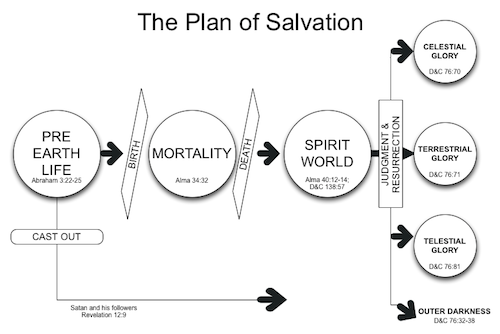
The Plan of Salvation is not merely a theological outline—it is the story of who we are, where we came from, and who we may yet become. It is the divine pattern of progress, forged by the love of our Heavenly Parents and fulfilled through the grace of Jesus Christ. Each estate—from premortal agency to mortal experience to eternal inheritance—testifies of God’s desire to exalt His children. Though the veil hides our memory, it cannot erase our identity. We are spirit sons and daughters of God, walking by faith through a world designed to shape our souls. What we choose in mortality matters eternally, for the glory we will inherit will reflect the law we choose to live, and the God we choose to follow.
As this divine plan unfolded, not all opposition ended with Lucifer’s rebellion. The testing of agency continued as Adam and Eve entered mortality, where the garden would become the first battlefield of moral choice. The next article in this series—Adam and Eve: Conflict Before Eden’s Garden—A Doctrinal Prelude (Episode Three)—will explore how the earliest moments of earth life revealed the eternal tension between obedience, opposition, and the fall that became our rise.
Reference Sources
- “Repent … That I May Heal You” [1]
The invitation to repent is rarely a voice of chastisement but rather a loving appeal to turn around and to “re-turn” toward God.
The Next and Previous Episodes in the Adam and Eve Meta-Series
- Adam and Eve: Conflict Before Eden's Garden— A Doctrinal Prelude (Episode Three)
Before birth, we lived with God as spirit children, growing in truth and glory. Earth life was prepared for us to gain bodies, face trials, and become like Him. Mortality is our divine test—a path to eternal progress, agency, and exaltation. - Adam and Eve: I Lived in Heaven, So Did You!—a Doctrinal Prelude to the Story of Adam and Eve (Episo
Before birth, we lived with God as eternal spirit children, learning and preparing to become like Him. Our mortal journey is just one chapter in a divine story that began in eternity and stretches beyond it.
This content is accurate and true to the best of the author’s knowledge and is not meant to substitute for formal and individualized advice from a qualified professional.
© 2018 Rodric Anthony Johnson

